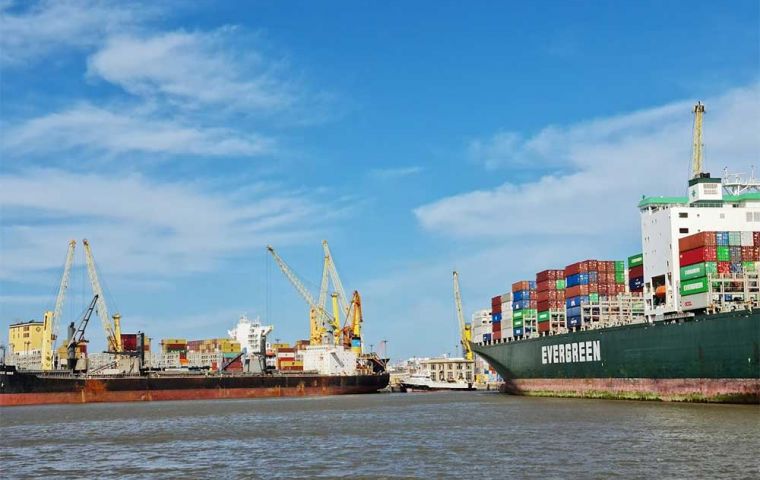MercoPress. South Atlantic News Agency
World Bank: Uruguay in for economic growth above par in 2024
 Uruguay's performance is projected despite a poor review given to the port of Montevideo
Uruguay's performance is projected despite a poor review given to the port of Montevideo The same World Bank report that foresaw a gloomy 2024 for Argentina forecasted a 3.2% growth for Uruguay in a region headed for poor average performance, the “World Economic Outlook” released Tuesday in Washington DC projected growth in Latin America and the Caribbean to reach 1.8% in 2024 before bouncing back to 2.7% in 2025 as interest rates and inflation slow down.
According to the study, commodity prices will support the region's exports, although weak growth in China could limit demand. In the case of Uruguay, growth the World Bank forecasts growth of 2.6% for both 2025 and 2026.
“The region's economic performance will depend on a combination of domestic and international factors, with commodity prices and global demand playing a moderate role in this outlook,” the paper noted.
Also this week, the World Bank published an update of the 2023 Container Port Performance Index (CPPI) which ranked Montevideo's 384th among the 405 ports surveyed worldwide, representing a significant drop from last year's 248th place. The study focused on each facility's cost and space utilization, it was explained.
At a regional level, Montevideo ranked 60th out of 64, with Brazil's Imbituba and Itajaí, Acajutla (El Salvador), and Kingston (Jamaica) below.
The best ports were Cartagena (Colombia), followed by Callao (Peru), Posorja (Ecuador), Buenaventura (Colombia), Rio de Janeiro (Brazil), Lázaro Cárdenas (Mexico), Salvador (Brazil), Puerto Limón (Costa Rica), Itapoa (Brazil) and Altamira (Mexico). Buenos Aires ranked 33rd, a slight improvement from 38th place at a regional level in 2022.
The World Bank highlighted that ports and terminals -especially container terminals- can cause shipment delays, supply chain interruptions, additional costs, and reduced competitiveness. Optimal throughput encompasses factors such as port efficiency, required draft, quay and berthing facility, and the effectiveness of procedures used by public agencies for container clearance. The document also noted that any inefficiency or non-tariff barriers among these players will result in higher costs, lower competitiveness, and lower trade volumes.
The Union of Exporters of Uruguay insisted that the negative effects of port operations affect competitiveness in foreign trade, further increasing the already high costs “up to three or four times more.”




Top Comments
Disclaimer & comment rulesCommenting for this story is now closed.
If you have a Facebook account, become a fan and comment on our Facebook Page!